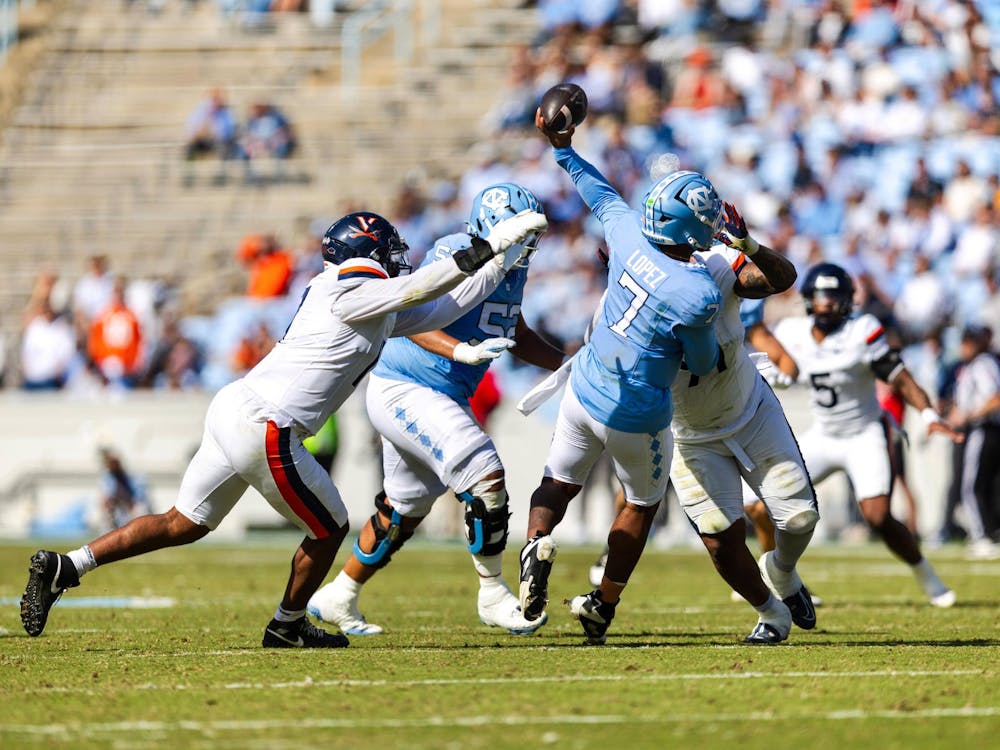The New York Yankees had their third straight ticker-tape parade Monday. When you weren't looking last week - and apparently you weren't, judging by the record-low television ratings - they won their fourth world championship in five years, the 26th in the storied history of the franchise.
When can we dispense with the formality of the 2001 season and hand them a 27th?
How can anyone beat them? This is, after all, a franchise with virtually no financial constraints. The Yankees had a payroll of $112 million this season, by far the highest in the majors. They paid Bernie Williams, David Cone and Derek Jeter at least $10 million each, while no other team had more than one $10 million player. Hell, the combined salary of those three gentlemen exceeded the amount six teams paid for their entire rosters.
|
I'm as juiced up about free-market capitalism as the next red-blooded American, but the very backbone of athletic competition is some semblance of a level playing field. As has been demonstrated time and again over the past decade, the absence of any kind of salary control in major league baseball has tilted that playing field sharply towards the financial haves.
This season, that theory took a slight hit, at least as far as postseason play is concerned. Only three playoff teams were in the top 10 in payroll, whereas in 1999, the top 10 boasted all eight postseason participants.
Does money guarantee success? Not in the slightest. The Dodgers and the Orioles had the second and fourth highest payrolls this year, respectively, and still managed to foul it up as usual by spending unwisely. The Red Sox (seventh) and the Indians (eighth) doomed themselves by tying up too much money in injured or under-performing players.
But without some serious cash, a major league team has no shot at a world title. For teams outside the payroll top 10, almost everything needs to break right (like it did for the Mariners and Giants this season) to challenge big-money franchises like the Yankees and Braves.
How did major league baseball end up with a system in which half its teams report to spring training knowing full well they have almost no chance at winning the World Series? Oh sure, teams like the Athletics and White Sox this year break through now and then, but the Expos, Brewers and Twins show up every season just hoping to play hard and win a few ballgames.
These clubs are forced, of course, by their comparatively miniscule payrolls to go with rookies and other unproven young lads. That plan can work on occasion (see: Montreal Expos, circa 1994), but more often, teams develop young stars only to lose them to free agency, unable to pay the going rate for such talent.
While the Yankees' productive farm system remains one of their most valuable assets, their ridiculous amount of available cash also enables them to retain said talent once free agency starts beckoning. Williams, Jeter, Mariano Rivera and Jorge Posada are all homegrown Yankee stars, but the club has been able to keep Williams ($12.4 million), Jeter ($10 million) and Rivera ($7.25 million) rich and happy, while Posada will soon get a handsome monetary reward as well.
The cash also allows clubs like the Yankees to get away with making the occasional poor personnel decision. When the Brewers spend $5 million on a lazy, bloated lump like Jaime Navarro, they blow nearly one-seventh of their payroll. The Yankees, however, can afford to pay Cone $12 million per year (that's $3 million per win for the 37-year-old righthander this season). They can swing trading-deadline deals for David Justice ($7 million), Denny Neagle ($4.75 million), Jose Vizcaino ($3.5 million) and Glenallen Hill ($1.5 million), players other teams wanted to acquire but could not afford. They can even absorb a one-dimensional, prohibitively (for most teams) expensive slugger like Jose Canseco ($3 million), just to make sure a rival club won't be able to fill a need.
And there's no reason to think the Yankees and the rest of baseball's high rollers won't keep on keepin' on. Without some kind of salary restrictions, the 2001 season will end with yet another World Series victory for some big-market team, most likely the Yankees. That's good news for Yankees fans, bad news for everyone else who loves the game of baseball.






